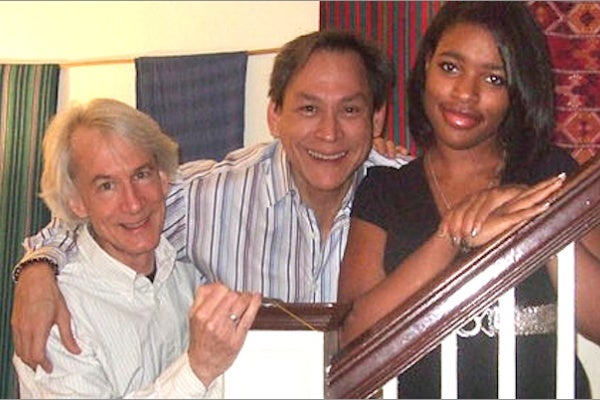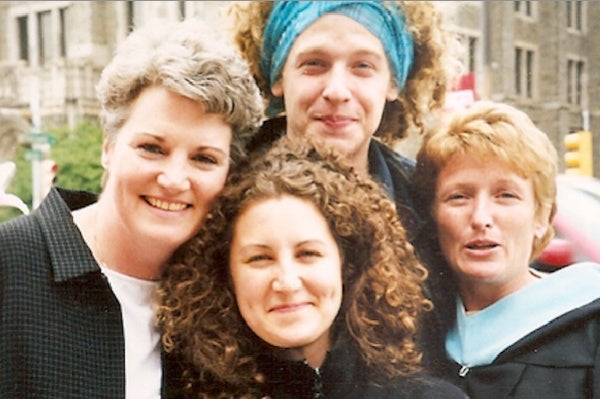ACLU suit to overturn Pa. ban on same-sex marriage begins long trail of litigation
A lawsuit filed in federal court Tuesday challenges Pennsylvania’s ban on same sex-marriages. It comes just weeks after the Supreme Court ruled the federal government must recognize legally married same-sex couples.
Among the 23 Pennsylvanian plaintiffs are Dara Raspberry, who stood with her wife, Helena Miller, and 6-week-old daughter, Zivah, in Harrisburg after all the paperwork had been filed.
The couple wed in Connecticut, lived in New York where the marriage was recognized, then moved to Philadelphia in 2011.
“It is upsetting that we moved to be closer to family yet our move caused us to suddenly become unmarried and less of a family in the eye of our state’s laws,” Raspberry said.
The Supreme Court’s decision last month in United States v. Windsor left in place the patchwork of laws that leaves Raspberry and Miller with a marriage certificate from Connecticut but no protections under Pennsylvania law.
Furthermore, they can’t file taxes together or qualify for their partner’s social security, because certain federal agencies rely on the rules about marriage in the state where the couple lives, not where they were married.
Deb Whitewood of Allegheny County says her community accepts her commitment to her partner, Susan, and their three children.
“Our friends, our family, our church family, the kids and the teachers at my kids’ school – they all recognize us as a true family and we feel that it’s time the commonwealth of Pennsylvania did so as well,” Whitewood said.
Cases may ultimately reach U.S. Supreme Court
It’s fair to say just about everyone saw this coming, observed Burton Caine, the Temple professor of law who was formerly the head of Pennsylvania’s ACLU.
“What you have to do is simply litigate — case by case by case, local conditions, local laws and local constitutions — before the case gets back to the United States Supreme Court, which probably will in the next five years or so, and then the Supreme Court will have to decide what it ducked this time,” he said.
“It is exactly what Justice Scalia warned would happen in his dissent in Windsor,” pointed out Nancy Knauer, Caine’s colleague at Temple.
In his dissent to the Windsor ruling, Justice Antonin Scalia, in the passage most-often quoted for his creative use of language, predicted that “the real rationale of today’s opinion, whatever disappearing trail of its legalistic argle-bargle one chooses to follow, is that DOMA is motivated by ‘bare … desire to harm’ couples in same-sex marriages. Supra at 18. How easy it is, indeed how inevitable, to reach the same conclusion with regard to state laws denying same-sex couples marital status.”
Public opinion nationally, and in Pennsylvania, has moved in favor of same-sex marriage relatively quickly.
A Franklin & Marshall poll earlier this year found 52 percent of registered voters surveyed in Pennsylvania are in support and 41 percent are opposed.
Mary Wilson contributed to this report.
WHYY is your source for fact-based, in-depth journalism and information. As a nonprofit organization, we rely on financial support from readers like you. Please give today.










